Let's try this simple example to represent the problem I'm facing.
Assume this table:
CREATE TABLE testing1
(
id serial NOT NULL,
word text,
CONSTRAINT testing1_pkey PRIMARY KEY (id)
);
and that data:
insert into testing1 (word) values ('Heliod, God');
insert into testing1 (word) values ('Heliod''s Inter');
insert into testing1 (word) values ('Heliod''s Pilg');
insert into testing1 (word) values ('Heliod, Sun');
Then I want to run this query to get the results ordered by the word column:
SELECT
id, word
FROM testing1
WHERE UPPER(word::text) LIKE UPPER('heliod%')
ORDER BY word asc;
But look at the output, it's not ordered. I would expect the rows to be in that order, using their ids: 2, 3, 1, 4 (or, if I use the word's values: Heliod's Inter, Heliod's Pilg, Heliod, God, Heliod, Sun). This is what I get:
I thought that maybe something could confuse postgresql because of the WHERE criteria I used, but the below happens if I just order by on the rows:
Am I missing something here? I couldn't find anything in the docs about ordering values that contain quotes (I suspect that the quotes cause that behaviour because of their special meaning in postgresql, but I may be wrong).
I am using UTF-8 encoding for my database (not sure if it matters though) and this issue is happening on Postgresql version 12.7.
The output of
show lc_ctype;
is
"en_GB.UTF-8"
and the output of
show lc_collate;
is
"en_GB.UTF-8"


